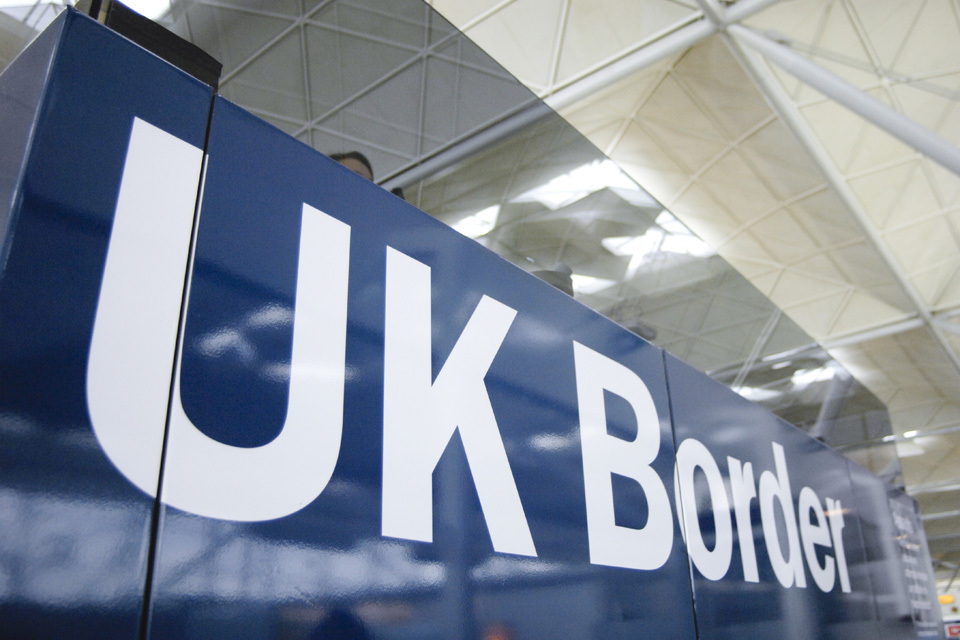After consultation reveals many traders and intermediaries find data provision ‘burdensome’, government response details plans for a simpler system where ‘technology has a wider role to play in the future’
HM Revenue and Customs intends to revamp customs declarations and reduce the amount of data traders need to provide by up to a quarter while enabling a “wider role” for technology.
Earlier this year HMRC and HM Treasury jointly launched a public consultation seeking input from trades and their intermediaries on how the customs systems could be streamlined, and the role of tech in doing so.
The freshly published summary of responses reveals that the exercise “found strong appetite amongst respondents for the government to simplify declaration requirements”.
Feedback provided to government by traders indicated that declarations can take as little as five minutes – or as long as two hours “depending on the size of the business, their expertise, complexity of the declaration, and level of automation provided by software”.
Respondents were asked about 40 individual “data elements” required by current declaration processes, with 79% claiming that information about “identity of means of transport on arrival” represents a “burdensome” requirement. Some 65% said the same of data on “shipping marks” and 60% of “nationality of active means of transport”. These and other elements can sometimes be onerous because information needs to be entered multiple times or in differing systems, traders indicated.
“The information can also be challenging for declarants to obtain as they often rely on hauliers and freight forwarders to provide this information, which can increase time taken to complete the declaration,” the response summary said. “Furthermore, respondents flagged that if the means of transport is unknown at the time of submitting the declaration, or changes after submission, it is difficult to make changes to the declaration. Others noted that they did not understand why this information would be required.”
Various traders and professional intermediaries told HMRC and the Treasury that they would be in favour of various elements being optional, more flexible in the information required – or removed entirely.
Related content
- EXCL: HMRC creating contingency plan in case technical issues prevent traders meeting March customs migration deadline
- HMRC ‘working to fix’ customs IT problems after months of issues with traders’ VAT statements
- EXCL: Trader woes – inside customs firms’ months of HMRC struggle
When asked about the use of tech in fulfilling their customs duties, “most respondents… acknowledged that adopting technology increased the efficiency of their processes and reduced the time taken to carry out some of their declaration requirements”. More than 60% of those that responded currently use a technology platform in the submission of declarations – “for example, through software that automates the population of declarations”, according to the summary.
Moreover, “the majority of respondents were optimistic about seeing what emerging technologies have to offer in the future, for example solutions utilising artificial intelligence and machine learning”.
“However, larger traders seem to make greater use of the available technology and therefore tend to achieve greater benefits,” the summary added. “Smaller traders tend to face more barriers than larger traders when investing in technological solutions with many noting the considerable upfront and maintenance costs as predominant barriers.”
A quarter of all respondents cited cost as their biggest barrier to adopting software to support customs submissions or other forms of technology.
To provide a simpler and smoother experience for traders, government used its response to the consultation process to set out plans to trim back the current process, and promote increasing use of technology in the customs system.
“The government will simplify customs declarations for both imports and exports by reducing the information traders could have to provide by up to a quarter,” it said. “These changes will benefit traders of all sizes. We will maintain an ongoing dialogue with industry to ensure we are delivering maximum trader benefits and can implement these changes in a way that supports traders. We will publish further details in due course.”
The government added: “Responses have furthered our understanding of how technology is currently used to support the completion of customs declarations and have also helped reinforce that technology has a wider role to play in the future. Alongside the evidence gathered from government consultation on the Border Target Operating Model, and technology tests like those undertaken as part of the Ecosystem of Trust pilots, these insights will inform the design of HMRC and wider government border transformation programmes.”




